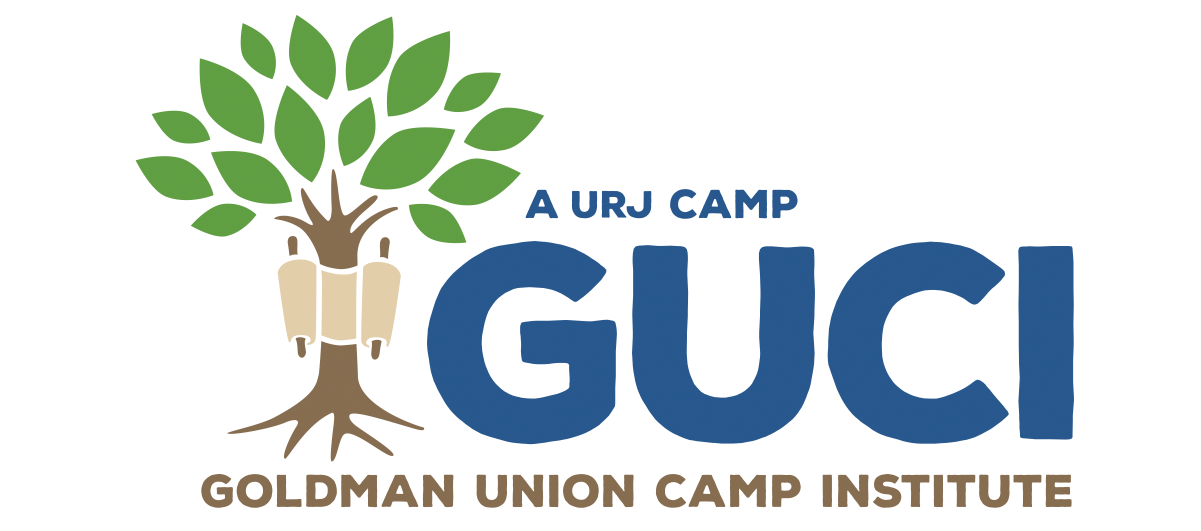
Service for July 2, 2014
Shalom! Almost every evening at camp, we have a different cabin lead T’fillot (services). Each camper writes a part and reads it before all of camp in between the prayers we say or sing as a community. This way, every camper gets the opportunity to share something of themselves with the wider camp, and to teach the community something about their values, Judaism, or their connection to our prayers. Our cabin services make each of our T’fillot that much more unique and meaningful. —Jacob Kraus, T’fillah Specialist
GUCI Evening Service
July 2, 2014
Cabin 13: Relationship With G-d
Opening Song
Our service theme is what G-d means to us. What G-d means to me is the air. He is all around in everyday dream made me be the man I am today. The Bar’chu is the beginning. There is a song that says, “I don’t know where the journey will end, but I know where to start.” Just like at camp, you don’t know when is: bunk night, yom sport, or project (but you do know). Also, in services you probably need a beginning. At school on the 1st day, my teacher said “In a race, you can’t finish if you never started.” We are all a beginning to a new world. I thank G-d for allowing me to be here today with all of you. Please rise for the Bar’chu. –Brad Kaplan
Bar’chu
Our relationship with G-d should be strong because we were created in G-d’s image and we are his chosen people. At Guci, we have services everyday, we say prayers before every meal, and we honor G-d as much as we can. At Guci, my relationship with G-d is it’s strongest, because that’s where I feel closest to G-d. -Max Weber
Maariv Aravim
Ahavat Olam
Sh’ma/V’ahavta
At my old synagogue in Boston, people said Mi Chamocha sounded like me cow mocha and I think that is true. It is true, because I think that the idea of G-d is scary and comforting as mocha is bitter and sweet and so is freedom. I believe that many people actually had pure chocolate and gave into the freedom and like Nachshon ran into the water without thinking.
-Eitan Price
Mi Chamocha
The reason I chose the Hashkiveinu is because it relates to our theme. In Hashkiveinu we are thanking G-d. I don’t believe in G-d, so I thank the people that contribute to those things that we thank G-d in the Hashkiveinu. In the Hashkiveinu we appreciate protection, shelter, and peace. People who believe in G-d should not stop, but let us also thank those people who contribute to the important things in our lives. -Gabriel Shir
Hashkiveinu
Amidah (Avot V’Imahot, G’vurot, Kedushat Hashem)
Our theme, Rlationship with G-d relates to the Shalom Rav because it says that G-d blesses Jews with peace. Peace is important in Judaism and almost every important event in Judaism ended with peace and to have peace. -Ryan Silver
Shalom Rav
Our theme for this service is our relationship with G-d. The Silent Prayer can help us feel our relationship with G-d. In this prayer, we are able to talk to G-d from the heart. While praying silently from the heart, we can connect with G-d and feel our relationship with G-d.-Eli Karlander
Silent Prayer, Yih’yu L’ratzon
The Aleinu is about we as people praising G-d because he has set us apart from others and has set us in place in this world. This is a good example of our relationship to G-d, because we give him praise for setting our lives into place. Personally, I think G-d is more of a feeling instead of a physical figure. This means that, to me, G-d can influence you to make good, or the right choices. -Joseph Rosenberg
Aleinu L’shabeiach
People show their relationships with G-d in many ways. As a community, we must always honor G-d with traditions, but also do it in our own ways to do it originally. In Kadish Yatom, we thank G-d for life and remembrance. To do this, we must use our relationship with G-d. When I pray, I sing with everyone, but think of my personal experiences. When you pray, do it with others. Then, use your relationship with G-d and make your own prayer. Think about what it means to you personally. Please rise for the Kadish Yatom. -Aaron Thurman
Mourner’s Kaddish
Closing Song
